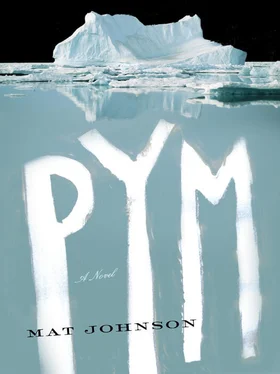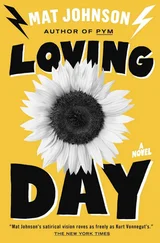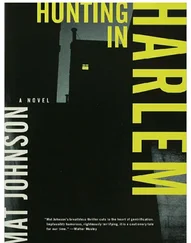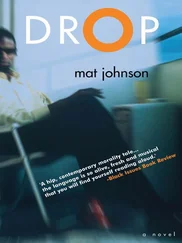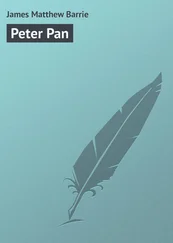“You planning a new work?” I asked. It was none of my business, and in general I just tried to stay out of the man’s way, not wear out my welcome. But I had to know. Not only did I have to know but I had to repeat myself, louder. The guy was gone, mentally. Stuck walking back and forth before his creation. When Thomas Karvel finally looked up at me, he was a man possessed, lost in a vision that had nothing to do with his retinas. There was a good two seconds before the realization of who and where he was seemed to hit him, and then a smile erupted across his pale face.
“You want to see it?” he asked me. Garth would be jealous. Garth would be blind with envy, I thought, and already planned to amuse myself teasing him about his missed opportunity. Hours of fun to be had, I was sure. I placed the dishes at the top of the stairs and went over to my host. The painting, it looked just like every other Thomas Karvel painting, and besides the one that brought us here, each one of them looked basically the same to me.
“It’s nice. It’s really nice,” I told him, smiling down at the canvas. It was a compliment on autopilot, without thought, only purpose. Looking a moment more, just to be polite, I finally got it. It was his view of the entire dome. There was our little partial house at the far wall, his white animals, his sucralose stream. Our vegetable garden and the impact it made on the environment was obscured just as he insisted it be from his view.
“Are you done painting it?”
“Painting it? What? The painting was done years ago. Years. No, what I’m still creating is the land itself.”
I looked around at his land, this hall, this cave. It seemed nothing if not complete. It was a world without chaos, or really even the hint of it. Every detail was man-made, controlled. And specifically controlled by this man, its master planner. A utopia in a bottle. Not my paradise, but certainly his. Unless he was planning to float expanses of cotton candy from the rafters, I couldn’t see what was left to do.
“You want to change things around? Redecorate? Go for a different look?”
“No. There is only one look. There is only one vision. Perfection isn’t about change, diversity. It’s about getting closer to that one vision. And there’s still so much, so much to do. Like the palms. Look at those damn palms, in the back there; they keep trying to grow any way they want. Look at them, then look at the painting.”
I looked. There were palms, in the back of the dome’s inner space, spreading out their umbrella foliage just beyond the rest of the tree line. They were a bit out of place, a tropical presence in this reproduction of European fantasy, but it wasn’t like that was the oddest thing going on in this space.
“So you’re going to have them cut down and taken out?” I asked.
“Do you know how much money it costs to ship fully grown palm trees to Antarctica? No, they’re part of the vision. But look at the painting, then look at them again,” Karvel insisted, clearly annoyed by the fact that I couldn’t even notice what seemed to be bugging him so much.
“Coconuts,” Mrs. Karvel said. I hadn’t heard her arrive, hadn’t heard her pick up the tray of dirty dishes or come up behind me.
“Coconuts!” her husband screamed, staring at the painting, pointing at the little oil dots he’d made at the top of his palms’ trunks. “Ever-loving coconuts!” I looked back out at the actual trees, and he was right, no coconuts.
“Because I told you, when you were ordering those things,” his wife began with the weariness of an explanation often started, “that type of palm you wanted doesn’t grow coconuts, but you said—”
“The other kind was too skinny. It needed to have a thicker trunk.”
“It ain’t natural is all.”
“Nature was created to serve man. And now this man wants some coconuts up there.” Karvel paused to get his message out, stopping where he could to control his temper. It wasn’t menace there, a threat of violence. Just frustration. Just an utter conviction of what was right and what must happen.
“This man wants coconuts up there,” his wife said back to him, the repetition of his point careful and deliberate as if she were dealing with the single-minded obsession of an overly indulged child.
“Thank you, honey,” he said to her, appeased, and since he was already leaning in at the canvas looking for the next flaw, he didn’t see her roll her eyes. But I did. Her bloodshot eyes. They rolled around like her corneas were going on a world tour. There was no sigh, no word of complaint, but there was expression. Following Thomas Karvel’s lead, I looked away from this moment of intimacy as well and pretended I didn’t see any of it.
I don’t know if, somehow, she already had coconuts in storage. I don’t know if she made the coconuts out of clay or papier-mâché: it was impossible to see if they were real because they were so high up. At least three stories. And I really don’t know how she got them up there. I can’t imagine a ladder that high, or her scaling the trunks in mountain-climbing gear. All I know is that she did it. Less than a week later, they were there, out of nowhere. Sometime in the night, quietly enough that neither Garth nor I heard her. Brown balls in the air. Resting under the treetops as if God had made them grow there.

We were winding down in our little agricultural project. The seeds were planted, I had no idea if they would grow. But to celebrate, Mrs. Karvel invited us across the dome. The brisket smell started twelve hours before mealtime, beckoning from the barbecue. We sat on the terrace before a table set with sauce and napkins. Karvel even turned the voices off the speakers, substituting hymnals. It was Sunday supper, and Mrs. Karvel was in the kitchen getting the next course ready, singing along.
“This whole thing, it must have taken a lot to create?” I asked our host, looking out at it all.
“To get this ready, it took years. And most of my money — but still cheaper than taxes. It’s modular, made the pieces up north, shipped it down, helicoptered it from there, then they put it up. Took a lot. Plus, when you’re talking custom-made, you’re talking extra labor. See that ceiling up there? That was special made. I don’t just mean the painting either. On the original plans, the whole roof was supposed to be glass. They tried to tell me I had to keep it that way. But the sky, that’s my big thing, my signature. The scene wouldn’t be complete without the real Thomas Karvel heavens glowing above.”
“It was supposed to be a greenhouse, then? To take energy from the sun. Heat, food for the plants, everything?” I said, my mind spinning. Seeing the direction I was revolving off in, Karvel quickly interrupted.
“Yes, but I took care of that: I had them put solar panels all over the new roof, then put in ultraviolet lights behind the gauze the sky’s painted on. Cost was no option; I do something, I do it right. Matter of fact, speaking of the panels, you boys want to do us a really big service?”
Garth, eager fanboy that he was, said yes before the proposition was spilled. Considering that our farming project was at a close, we needed some other purpose to serve to justify our citizenship, our pull on the resources. It wasn’t that this was the world I would have imagined for myself, or even chosen. It was just that there were no other practical options. Because it was very, very cold out there. And despite our second-class citizenship, it was still pretty comfortable in here.
“Now I know, it’s risky going outside. That air, who knows what’s in it. It’s a danger going out, but you did survive it before, an hour more can’t hurt too much. And we got those solar panels up there, and every few minutes or so you hear—” Karvel stopped, reached for the audio remote. A rare moment of silence in the chamber followed. Then came a sound, one I’d heard but never paid attention to before. Metal scraping. Darting his head up to stare at the ceiling and its perpetual sunset clouds, Karvel grimaced. “There it goes. You hear that? You’re not supposed to hear that. That’s not how it’s supposed to be, that racket,” he said and turned back on all the voices talking.
Читать дальше
